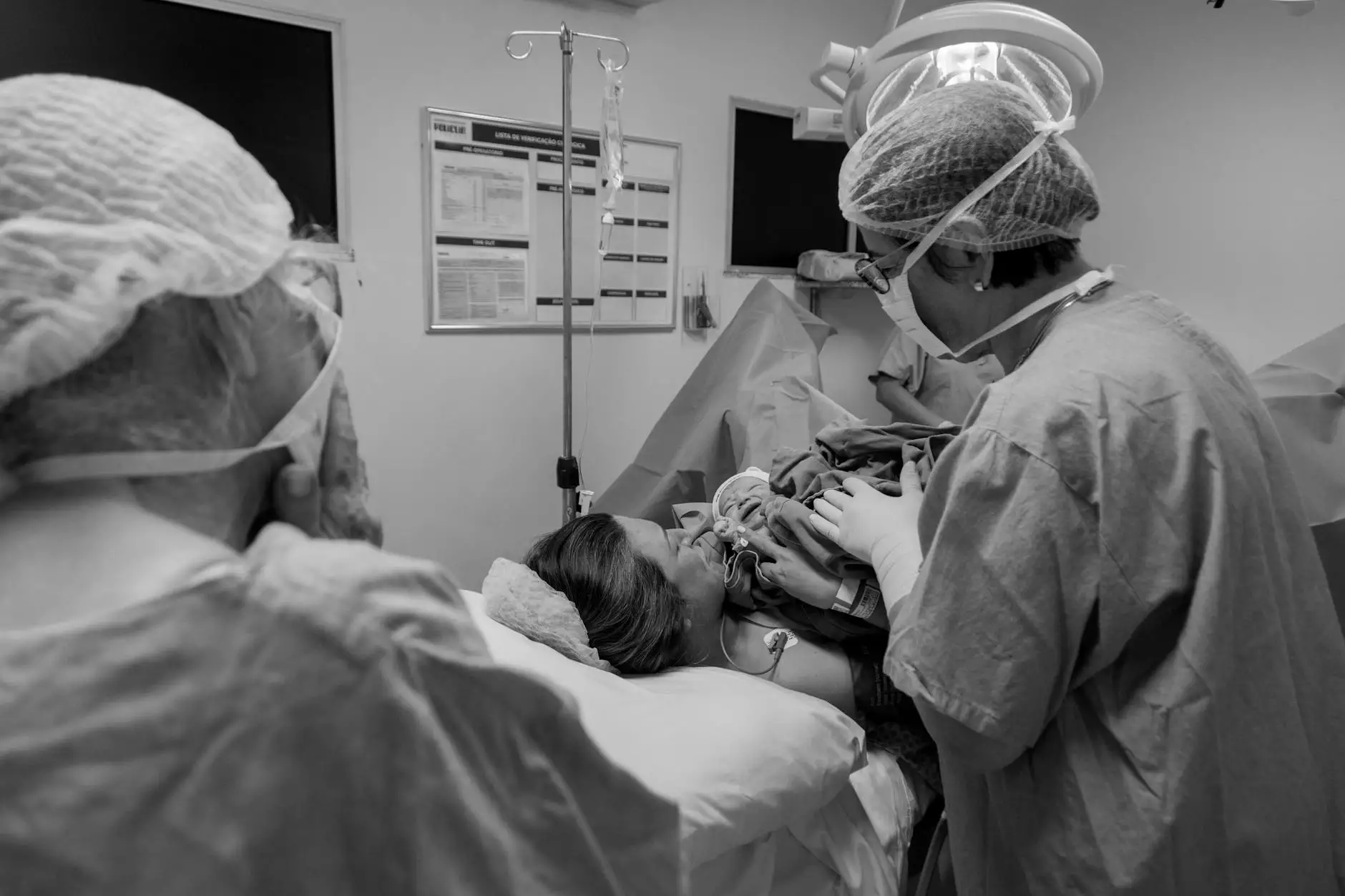Understanding Sleeve Surgery for Weight Loss

In today's society, obesity is a significant health concern, affecting millions of individuals worldwide. Among the various options available for weight loss, sleeve surgery for weight loss has emerged as a highly effective and increasingly popular choice. This article delves into the intricacies of sleeve surgery, exploring its benefits, risks, and what individuals can expect from this transformative procedure.
What is Sleeve Surgery?
Sleeve surgery, also known as gastric sleeve surgery or sleeve gastrectomy, is a laparoscopic surgical procedure that reduces the size of the stomach to promote weight loss. During this surgery, approximately 75% to 80% of the stomach is removed, leaving a tube-like structure that resembles a sleeve.
The Purpose of Sleeve Surgery
The primary aim of sleeve surgery is to assist individuals with severe obesity in losing weight effectively and maintaining that weight loss over time. It not only reduces the stomach's capacity for food but also alters gut hormones that regulate appetite and metabolism.
Why Choose Sleeve Surgery for Weight Loss?
There are several compelling reasons to consider sleeve surgery for weight loss:
- Significant Weight Loss: Many patients experience a loss of 50% to 70% of their excess weight within two years of the surgery.
- Improved Health Conditions: Weight loss often leads to the resolution or improvement of obesity-related conditions, such as type 2 diabetes, high blood pressure, and sleep apnea.
- Less Invasive: Compared to other bariatric surgeries, sleeve surgery is less complex and typically focuses on the stomach rather than the entire digestive tract.
- Quick Recovery: Most patients can return to normal activities within a few weeks, thanks to the minimally invasive nature of the procedure.
- Hormonal Changes: Sleeve surgery significantly impacts gut hormones, leading to decreased hunger and improved satiety after meals.
Who is a Candidate for Sleeve Surgery?
Sleeve surgery for weight loss is generally recommended for individuals who meet specific criteria, including:
- A body mass index (BMI) of 40 or higher.
- A BMI of 35 or higher with obesity-related health conditions.
- Previous unsuccessful attempts at weight loss through diet and exercise.
- A commitment to long-term lifestyle changes and follow-up care.
The Sleeve Surgery Procedure
The sleeve surgery procedure typically involves several key stages:
Preoperative Consultation
Before undergoing the surgery, patients will have a thorough consultation with a bariatric surgeon. This meeting is crucial for:
- Assessing the patient’s health.
- Discussing the benefits, risks, and expectations of the surgery.
- Understanding dietary requirements before and after the procedure.
Anesthesia and Surgery
The surgery is performed under general anesthesia and takes about 1 to 2 hours. The surgeon will make small incisions in the abdomen and use special instruments to remove a large portion of the stomach.
Postoperative Care
After surgery, patients will usually spend one or two days in the hospital. During this time, healthcare providers will monitor their recovery and provide guidance on dietary changes, which will start with liquid intake before gradually progressing to soft foods and eventually solid foods.
Life After Sleeve Surgery
Adjusting to life after sleeve surgery for weight loss is a critical phase of the journey. Patients must adopt new eating habits and exercise routines to maximize the benefits of the surgery.
Dietary Changes
Post-surgery, patients are introduced to a structured eating plan. Some of the essential components include:
- Initial liquid diet followed by pureed foods.
- Emphasis on high-protein foods.
- Frequent small meals instead of larger meals.
- Hydration is crucial, but patients should avoid drinking liquids with meals.
Continued Support and Follow-Up
Regular follow-up appointments with the healthcare team are vital for monitoring weight loss progress, nutritional intake, and overall health. Many patients also benefit from joining support groups.
Potential Risks and Complications
As with any surgical procedure, sleeve surgery carries certain risks and potential complications. Some common concerns include:
- Surgical Risks: Infection, bleeding, and complications from anesthesia.
- Stenosis: Narrowing at the surgical site can lead to obstruction.
- Gastroesophageal Reflux Disease (GERD): Some patients may experience increased acid reflux post-surgery.
- Nutritional Deficiencies: Due to reduced food intake, patients must monitor their vitamins and minerals to prevent deficiencies.
Choosing the Right Provider for Sleeve Surgery
Surgical success heavily relies on selecting the right healthcare provider. Here are some steps to ensure you make an informed decision:
- Research Qualifications: Look for board-certified bariatric surgeons with experience in sleeve surgeries.
- Hospital Affiliations: Consider institutions known for their medical excellence and patient care.
- Attend Information Sessions: Many healthcare providers offer seminars that can help you understand the procedure better.
- Patient Reviews: Research reviews and testimonials from previous patients to gauge their experiences.
The Journey to Transformation
Opting for sleeve surgery for weight loss is a significant decision that can lead to a profound transformation in one's life. With commitment and support, individuals can achieve their weight loss goals, improve their health, and enhance their overall quality of life.
Success Stories
Many individuals have achieved remarkable results after undergoing sleeve surgery. Their journeys often inspire others to consider this medical intervention.
Conclusion
In conclusion, sleeve surgery for weight loss provides a promising solution for those struggling with obesity. By understanding the procedure, its benefits, and the steps required for successful recovery, individuals can embark on a life-changing journey toward better health and wellness. If you're considering this option, consult with a qualified provider to discuss your personal goals and open the door to a healthier future.









